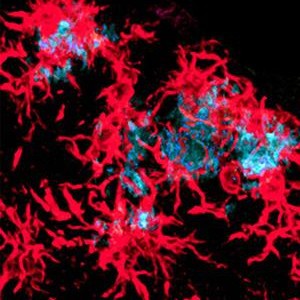
A new study has shown that a protein called TREM2 may inhibit microglial repair of damaged myelin in multiple sclerosis. The study appeared in the Jan. 29 issue of Acta Neuropathologica.
MS is characterized by the degeneration of myelin, a fatty coating that insulates nerve cells and helps them transmit impulses. When myelin is damaged, this inhibits communication in the nervous system, causing problems with movement, sensation, cognition, balance and pain. Damaged myelin also needs to be cleaned up by specialized brain cells called microglia. Failure to clean up the mess could worsen the complications that occur in MS.
In this study, the team found that mice lacking TREM2 did not have microglial clean up following experimentally-induced myelin damage. TREM2 is found on microglial cells and controls the clean-up response to damage, known as phagocytosis. In this experimental setup, the damage was induced by giving mice cuprizone, which results in a loss of myelin and mimics the damage seen in MS.
“We’ve been very interested in identifying ways to control naturally occurring mechanisms that help clean and repair the brain, and these new studies provide clear evidence that TREM2 could be just such a target,” said Laura Piccio, MD, PhD assistant professor of neurology and senior author.






